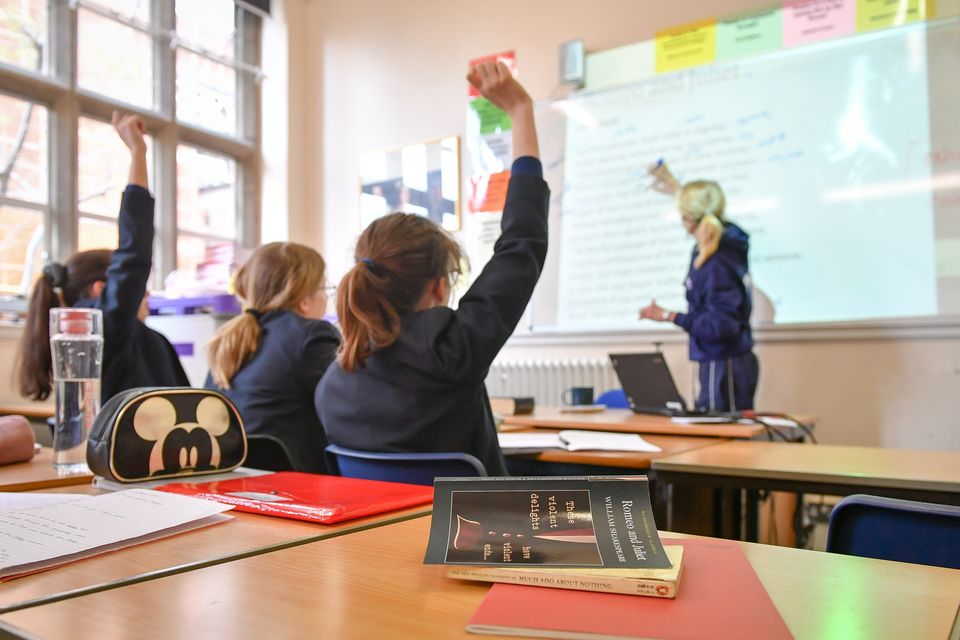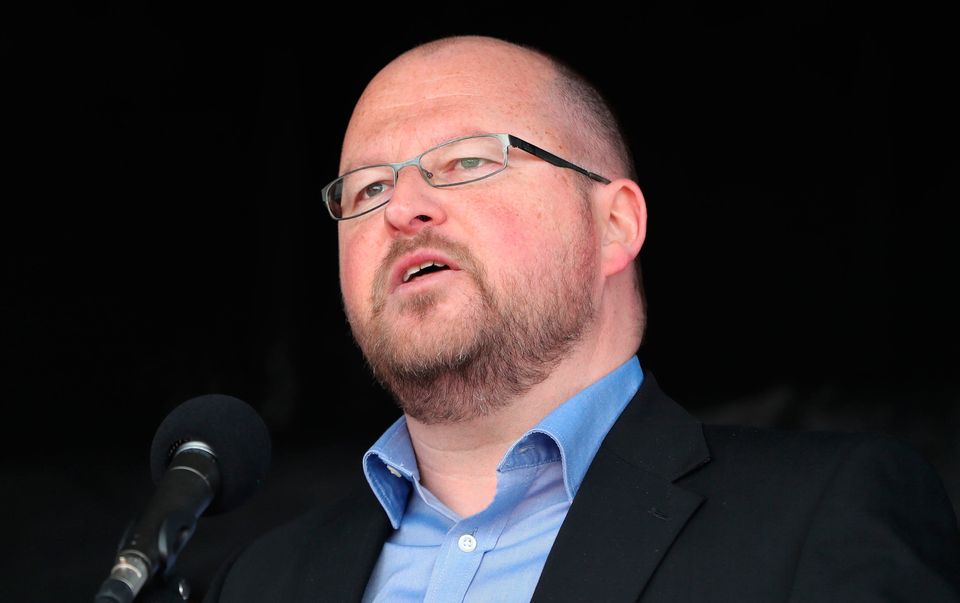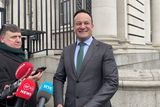Irish National Teachers Organisation highlights concern about growth of far right in Ireland leading to ‘climate of fear’
Stock image (Ben Birchall/PA)
The Irish National Teachers Organisation (INTO) congress has addressed a concern about the growth of the far right in Ireland.
President of the INTO, Dorothy McGinley, told teachers at the national congress taking place at the Millennium Forum in Derry it was “shameful” that 26 years after the implementation of the Good Friday Agreement, “here in our own tiny country that there is now an ever-present danger that the hate and toxicity of extremists is creating a climate of fear for many people”.
Ms McGinley said the teachers’ union - which represents primary schools in the Republic and primary and post primary in the North - had “made it clear” repeatedly that hate “is not going to be tolerated”.
“As a union, we have been strong… We must work together on our shared island. Our own General Secretary, at a recent meeting of the Oireachtas Committee on the Implementation of the Good Friday Agreement, called for an all-Ireland education forum to be established.
Ictu general secretary Owen Reidy. Photo: PA
“Now that a functioning government has been established in the North, INTO are well placed to lead on this initiative.
"From a trade union perspective, collaboration has begun with the eight education unions across this island meeting formally for the first time last month. Sharing good practices and articulating the challenges faced by education unions can benefit education in all its realms across this island in the years ahead.”
Ms McGinley quoted John Hume, who once said: “Difference is an accident of birth and should never be a source of hatred… the answer to difference is to respect it”.
She added that “when teachers speak, they speak for a whole nation for the children of today who will be the nation of tomorrow and the day after”.
Owen Reidy, general secretary of Irish Congress of Trade Unions, addressed the congress telling teachers: “We’re witnessing a right wing shift to populism, particularly in the Republic. I’d be very worried the far right will be the third largest party in Europe.”
He said it was vital for the population to be part of a union and to remain engaged as changes in society take place.
Meanwhile, Ms McGinley said teachers needed to be “lured” back from abroad with good pay and career opportunities.
Ms McGinley told the congress: “We need a commitment to investment to create the conditions in which all children can thrive and teachers can teach. We need to get our teachers back from abroad. We need to lure them.
“We need to pay them well. We need to give opportunities for career pathways. So, what are the INTO going to do about this? Over the course of the next year, INTO will be preparing a business plan convincing the Government in the South to allocate at least 15pc of total government spending to the Department of Education before 2030.
“Alongside this, a similar multi-annual budgetary plan for the department in the North will be submitted and a demand that the Barnett formula is consigned to history so that our education system is fully funded on a needs basis.”
The congress has heard that teacher burnout is a continuing symptom of intense workloads, teacher shortages, “supersized classes” and “depleted” budgets, worsened by inflation.
“Without the necessary supports, all of this continued commitment comes at a human cost to our members,” Ms McGinley said.
“Intense workload, new initiatives, teacher shortages, supersized classes, depleted budgets, high living costs, limited career pathways, all unfortunately feed into teacher burnout.”
While the president welcomed the fact that pay disputes had been settled in the North and South, the union would continue to “leave no stone unturned as we begin our preparations to progress our next pay claim in September”.
“There is much more to be done,” Ms McGinley said. “The resolve and determination of the teachers in the North is bolstered by colleagues in the South who showed so much solidarity with us. Taking example from us.
“John Boyle and his fellow ICTU lead negotiators did not hesitate to ready public sector unions in the South to ballot members after the pay talks broke down at Christmas.
“It took months and months of arduous negotiations.”
Ms McGinley said while progress had been made, any “lost ground” would have to be “made up quickly through future negotiations or industrial action if necessary”.
The union was continuing to negotiate for the reduction of “supersized classes,” the president said.
“On my tour of Ireland’s schools, I’ve observed, I’ve watched and I’ve listened. Bulging classes, containing children with additional needs, complex needs, emotional and behavioural needs and little or no help for these children and their teachers; are absolutely and unquestionably not acceptable to INTO,” she added.
The president said out of the hundreds of teachers at the event, many have “anecdotes about delays in psychological assessments, the unsatisfactory appeals systems for resources and the lack of therapeutic services”.
She said there was a “lack of joined up thinking between Departments of Education and Health,” issues around the appropriate placement of children, assaults on teachers and lack of adequate access to CPD; all of which has left teachers in positions where they are “trying to make a broken system work to the detriment of their health and wellbeing”.
A recent INTO survey examined the prevalence of physical aggression in classrooms. This made for “shocking reading,” she said.
“The findings are stark. 58pc of respondents experienced physical aggression, with 41pc of those injured requiring medical attention.”
She said it was commonplace for teachers to complain of being bitten, scratched, pinched and hit daily in special schools.
While teachers found it difficult to take assault leave when “often the assault is as a result of a student trying to communicate”.
“We just accept it because we care so much about our students and put them before our own needs,” she said.
“I want to acknowledge the extraordinary work our colleagues do in our special schools.”
The union leader said there are “proper investment” needed to be concentrated into schools, due to shortfalls in children’s mental health and therapeutic services.
“We need proper investment to support children with additional needs,” the president said.
“We will continue to call on Departments of Education North and South to: reduce class sizes in mainstream schools to European levels, reinvigorate their commitment to providing an inclusive experience for all our pupils and, to reclaim teachers’ rights to simply teach.”
School leaders are, however, “increasingly distracted” and they are “disproportionately preoccupied with the role of financial management, bureaucracy and data collection,” she said.
“So many school leaders shared with me the significant impact this is having upon schools and curriculum delivery and overall morale.
“Moreover, this past year has brought unprecedented challenges. The pressure on school budgets has been relentless, from energy crisis to the ever-rising cost of living.”
Ms McGinley also condemned the “shocking and unspeakable reality for the people of Gaza,” and encouraged teachers to continue to lobby for the Strip, including taking part in marches and the BDS campaign.
Join the Irish Independent WhatsApp channel
Stay up to date with all the latest news











